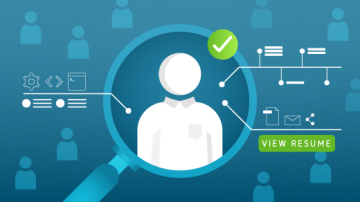The lives we led before we arrived where we are now sometimes feel like a distant land full of memories we can't quite recall. And sometimes we have lived experiences that we'll just never forget. Many times those experiences teach us and help us appreciate where we are today. We may even wish for those days as we recount our past lives.
What did you do before tech? Tell us in the comments.
I did janitorial work in the university cafeteria after it closed every day, and I got extra pay cleaning it up after live gigs held there (which happened about 4 times a year). We started to clean up for the following morning after the venue was vacated about 4 am, and had to get it cleaned and set up for opening the following morning at 7 am. That was fun. I worked summers in a livestock mart in the West of Ireland, running the office, keeping the account books, minding the cash that came through. I also had stints as a barman, lecturer, and TA at a local university while I was a post-grad, and once spent a few days stocking a ship with boxes of frozen fish in a Dutch port. —Dave Neary
I was a musician in the Marine Corps, but being a bassoonist in the Corps means that you're mostly playing bass drum. After burning out, I changed to data comms for my second enlistment. —Waldo
My last job before tech was as a papermaker at a hi-speed newsprint plant around 1990-1998. I loved this job, working with huge machines and a nice product. I did a lot of jobs from clamp lift driver to planner shipments abroad and back to production. What led me to tech was a program at the paper mill; they had a budget for everyone to get a PC. Honestly, for me, it was super vague what purpose that would serve me. But not long after I got into web design with a colleague, I became a hardcore XHTML and CSS frontend developer with the help of my PC. —Ben Van 't Ende
I worked at McDonald's through high school and college. In summers, I also worked at a few factory jobs, a screw and bolt factory, where I got to drive a forklift (which is heaven for an 18-year-old). I also worked at a plastics factory, eventually on the shipping deck. My first tech job was in 1982 for Westwood Family Dentistry. This was a large, mall dentistry chain and they were paying me to write their front desk software and billing software on MP/M-based PCs from Televideo. If you ever watched the movie "War Games," these are the terminals Mathew Broderick used. This was prior to Microsoft releasing MS-DOS. The code was written in Cobol. —Daniel Walsh
I was a sound engineer recording audiobooks for visually impaired people. There was a global project to set up a new global standard and move to digital recordings which became the DAISY standard and system. After that, I moved to the IT department in the company I worked for. —Jimmy Sjölund
Before tech, I was working in public relations at an agency that specialized in high tech, scientific, and research clients. I convinced the agency to start working with online information, and my first project in that arena was creating a weekly intelligence report for the Semiconductor Industry Association, based on posts in newsgroups like comp.arch and comp.realtime. When the World Wide Web (yes, that's how everyone referred to it at the time) began becoming more well-known one of my PR clients (a lawyer for tech startups) asked me if I knew how it worked. I did (and told him so), and he hired me to create his firm's website. The site, for Womble, Carlyle, Sandridge & Rice, was the first law firm website in North Carolina. A few more requests in the same vein later, I'd shifted my focus to online-only, leading to 20+ year career in web strategy. —Gina Likins
I graduated in humanities in 1978 and started to teach human geography at Milan University while working as a map editor at Touring Club Italiano, at the time the largest map publisher in Italy. I soon realized that a career in geography was good for the mind but bad for the wallet, so I moved to a Swedish company, Atlas Copco, as house organ editor. Thanks to a very open-minded manager, I learned an awful lot in term of marketing communications, so after a couple of years I decided that it was time to challenge my skills in real marketing, and I was hired by Honeywell Information Systems, at the time second only to IBM in the information technology market. Although I was hired to manage marketing communications of PC compatible printers, after six months I was promoted to European Marketing Director, and after a couple of years, I become Corporate VP of Peripherals Marketing. In 1987, I moved to real PR at SCR (now Weber Shandwick), then Burson Marsteller, and then Manning Selvage & Lee. In 1992, I started my own PR agency, which was acquired by Fleishman-Hillard in 1998. In 2003, I left Fleishman-Hillard as Senior VP of Technology Communications, to start a freelancing career. While looking at the tools for the trade, I stumbled on OpenOffice, and at age 50 I eventually entered the FOSS community as a volunteer handling marketing and PR (of course). In 2010, at age 56, I was one of the founders of the LibreOffice project, and I am still enjoying the fun here (and in several other places, such as OSI, OASIS, and LibreItalia). —
Italo Vignoli
Right after college at age 23, I had a job where I went to hot zones around the US wherever there were toxic spills or man-made chemical disasters. So I visited some real cesspools in America full of death and misery and lived there for months at a time. I was there to support the investigators of the Agency for Toxic Substances and Disease Registry and the Center for Disease Control by editing the interviews they collected for clarity and sending them to the home office in Atlanta by modem. That job extended in technical responsibility with every new place they sent me off to, but it was awesome! I was 100% focused on being a toxicologist by that point. So after that, I got a job as a network analyst for the University of Buffalo medical school so I could get discounted tuition to attend the med school. I even taught medical computing to other 25-year-olds my age and saw my future in med technology. But after a year I realized I couldn't do eight more years of university. I didn't even like most doctors I had to work with. The scientists (PhDs) were awesome but the MDs were pretty mean to me. That's when my boss said to me that my true passion was hacking and he thought I was good at it. I told him he was crazy and that medicine was the future, not security. Then he quit, and I didn't like my new boss even more so I quit. I then got an offer to help start IBM's new Ethical Hacking service called eSecurity. And that's how I became a professional hacker. —Pete Herzog
I was always in information technology, it's just that the technology evolved. When I was still in elementary school, I delivered newspapers, which I would argue to be information produced by information technology. In high school, I continued that but eventually was fetching and storing data from the "stacks" at the local library (as well as doing lookups, working with punch cards, etc: Our books had punch cards for return by dates. So, when someone checked out a book, we would use a microfilm (or was it a microfiche?) camera to photograph the book description card, and a punch card which would then be inserted into the book's pocket. Upon return, the punch cards were removed and stacked to be sent through a card sorter, that -- presumably -- would do something about any cards missing from the sequence. (We weren't privy to the sorter or any computer that might have been attached. The branch would pack up the punch cards and send them to the main library.) As mentioned in a previous article for OpenSource.com, I was introduced to my first computer in high school. I had a job as a graveyard shift computer operator at a local hospital, mounting the tapes, running the backups, running batch jobs that printed reports on five-part carbon -- which left me with a deep-seated hatred for line-printers -- and then delivering those reports throughout the hospital -- kind of like being a newspaper delivery boy again. Then, college, where I ended up being the operator / "sys admin" (well, that last is a bit of a stretch, but not much) of a Data General Nova 3. And finally, onto an internship as a coder that, like Zonker T. Harris, I never left. —Kevin Cole
Probably the most surprising jobs I had before working in free and open source software (FOSS) were:
- Political organizer working on state-level campaigns for marriage equality, a higher minimum wage and increased transparency in state government
- Local music promoter, booking and promoting shows with noise bands, experimental acts and heavy rock, etc
- Cocktail waitress/bouncer/spotlight operator at a drag bar, whatever they needed that night
I never had a job in tech but was a neurologist. After going through the extended initiation of learning Linux, installing it on various machines, I then used it in my practice. I used to have my own computer in the office, running Linux, in addition to the office's system. As far as I know, I was the only doctor to carry around a laptop while on rounds in the hospital. There I kept my patient list, their diagnoses, and which days I visited them, all in a Postgres database. I would then submit my lists and charges for the day to the office from this database. With the hospital's wifi, I had access to the electronic data and lab results also. I would do EMGs (electromyography) and for a while used TeX to generate the reports, but later found that Scribus worked better, with some basic information contained in a file. I would then type out the final report myself. I could have a patient go straight to his doctor's office after the test, carrying a final report with him. To facilitate this, once I found that we had some space set aside for us doctors on the hospital's server, I could install Scribus there for various uses. When I saw a patient who needed one or more prescriptions, I wrote a little Python script to make use of Avery labels, which I would then paste on a prescription blank and sign. Without a doubt, I had the most legible prescriptions you would ever see from a doctor. Patients would tell me later when they went to the pharmacy, the pharmacist would look at the prescription and say, "What's this?!". If I was doing this for a hospitalized patient, this meant I could make an extra copy and take it to the office to put in the patient's chart also. While we still had paper charts in the hospital (used for doctors' notes) I made a mock-up of a physicians' notes and orders page in Scribus with Python, and when I saw a patient, I would enter my notes there, then print out on a blank sheet with the necessary holes to fit in the chart. These pages were complete with the barcode for the page type and also the barcode for the patient's hospital number, generated with that Python script. After an experience of waiting a week or two for my office dictation to come back so I could sign it, I started typing my own office notes, starting with typing notes as I talked to the patient, then once they were gone, typing out a letter to go to the referring physician. So I did have a job in tech, so to speak, because I made it so. —Greg Pittman
I started my career as a journalist covering the European tech sector while living in London after grad school. I was still desperate to be a journalist despite the writing on that profession's wall. I didn't care which beat I covered, I just wanted to write. It ended up being the perfect way to learn about technology: I didn't need to be the expert, I just had to find the right experts and ask the right questions. The more I learned, the more curious I became. I eventually realized that I wanted to stop writing about tech companies and start joining them. Nearly nine years later, here I am. —Lauren Maffeo
Well, that degree in English Literature and Theology didn't really set me up for a career in computing, so my first job was supposed to be teaching (or training to be a teacher in) English for 11-18-year-olds. I suppose my first real job was working at the Claremont Vaults in Weston-super-mare. It was a real dive, at the wrong end of the seafront, was smoke-filled at all times (I had to shower and wash my hair as soon as I got home every night), and had 3 sets of clientele:
- The underage kids. In the UK, this meant 16 and 17-year-olds pretending to be 18. They were generally little trouble, and we'd ask them to leave if it was too obvious they were too young. They'd generally shrug and go onto the next pub.
- The truckers. Bizarrely (to 18-year-old me, anyway), the nicest folks we had there. Never any trouble, paid-up, didn't get too smashed, played a lot of Country on the jukebox.
- The OAPs (Old-Age Pensioners). Thursday night was the worst, as pensions (in those days) were paid on Thursdays, so the OAPs would make their way down the hill to the nearest post office, get their pension, and then head to the pub to get absolutely ratted. They'd get drunk, abusive, and unpleasant, and Thursdays were always the shift to try to avoid. I don't miss it, but it was an education for an entitled, privately-educated boarding-school boy with little clue about the real world!
In no particular order: proofreader, radio station disk jockey, bookkeeper, archaeology shovelbum, reactor operator, welder, apartment maintenance and security, rent-to-own collections, electrician's helper, sunroom construction... and I'm definitely missing a few. The question isn't so much "what led me to tech" as "what kept me from it," the answer is insufficient personal connections and money. My entire life was leading me to tech, it was just a long, rocky, stumbling road to get there. I might never have gotten there, if I hadn't gotten an injury on the construction job serious enough to warrant six months of light duty—the company decided to have me come into the office and "I don't know, make copies or something" rather than just paying me to sit at home, and I parlayed that into an opportunity to make myself absolutely indispensable and turned it into a job as the company's first Information Technology Manager. It's probably worth noting that the actual conversion to IT Manager didn't just happen because I made myself indispensable—it also happened because I literally cornered the CEO a week prior to me going back out into the field to build sunrooms, and made a passionate case for why it would be an enormous waste to do that. Lucky for me, that particular CEO appreciated aggressive ambition, and promptly gave me a raise and a job title. —Jim Salter









1 Comment